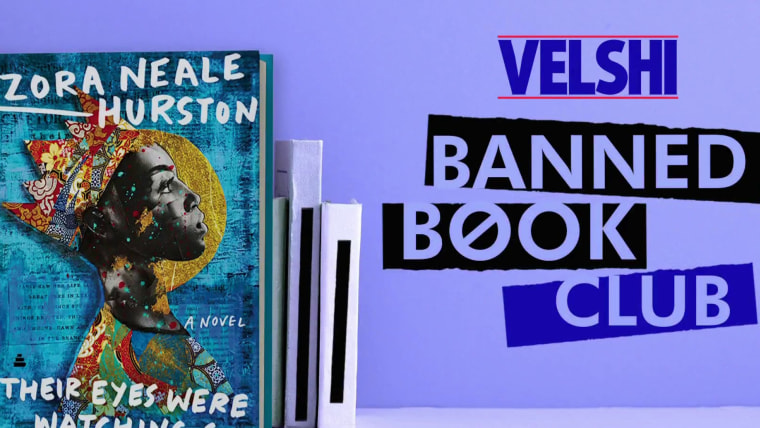There’s serious irony in conservatives’ desperate efforts to hide the works of Zora Neale Hurston.
The enigmatic, future-focused author of “Their Eyes Were Watching God” is a frequent target of right-wing book bans. But if conservatives were interested in taking a holistic look at her work, they’d probably find things they like — or, at least, things they could cynically interpret for their benefit. Hurston’s writing — as a Black woman openly grappling with her Blackness — seemingly provides just such an opportunity.
(Here’s a nice primer on Hurston’s history of conservatism, if you’re interested.)
Specifically, I’m thinking of her 1928 essay “How It Feels to Be Colored Me,” which we’ll explore in today’s installment of our monthlong series “Black History, Uncensored,” which focuses on Black creators targeted by right-wing bans.
In her essay, Hurston wrote:
But I am not tragically colored. There is no great sorrow dammed up in my soul, nor lurking behind my eyes. I do not mind at all. I do not belong to the sobbing school of Negrohood who hold that nature somehow has given them a lowdown dirty deal and whose feelings are all hurt about it. Even in the helter-skelter skirmish that is my life, I have seen that the world is to the strong regardless of a little pigmentation more or less. No, I do not weep at the world — I am too busy sharpening my oyster knife.
You’re forgiven if, at first glance, that seemed like a passage out of Clarence Thomas’ autobiography. But in totality, “How It Feels to Be Colored Me” reads more like wishful thinking than anything else. To me, it’s Hurston speaking about a post-racial world she envisions and longs for — yet one that hasn’t been fully realized.
“Sometimes, I feel discriminated against, but it does not make me angry,” she wrote. “It merely astonishes me. How can any deny themselves the pleasure of my company? It’s beyond me.”
When Hurston refers to herself as “the cosmic Zora,” a woman who “belongs to no race nor time,” it seems clear to me that she’s writing imaginatively about what is, in essence, a fictional state of being. One unencumbered by racial or gender bias.
Yet, still, in the eyes of many white conservatives, she’s a dangerous radical whose work needs to be obscured. I think there’s something revealing in this response. It shows that, no matter the level of deference to white people, a Black person openly grappling with the concept of Blackness — as Hurston does in “Their Eyes Were Watching God” — is still a threat. The mere idea that they might upset the racial hierarchy is enough for these people to ban Black authors like Zora Neale Hurston from bookshelves.
Read previous “Black History, Uncensored” posts about Maya Angelou, Richard Wright, James Baldwin, Toni Morrison, Alice Walker, Ta-Nehisi Coates, Kimberlé Crenshaw and bell hooks.

